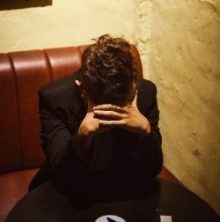
The average person may experience some mild nervousness before an interview or while public speaking. Experiencing this occasional anxiety is completely normal when under pressure however, these feelings should pass once removed from the situation or ‘stressor’. Anxiety is more than this.
Sufferers of anxiety frequently have intense, excessive, and persistent worry and fear about everyday situations. Usually, these feelings are ongoing and can occur without any particular cause.
When faced with a stressful situation, the response tends to be disproportionate to the level of stress. Suddenly, just the thought of getting the kids to school on time can seem overwhelming.
These feelings of anxiety can be difficult to control and can interfere with daily life.
WHAT CAUSES ANXIETY?
Life experiences ie. traumatic events may be “anxiety triggers” for people who are already prone to it. Ongoing stress or inherited traits can be contributing factors. A medical condition, ie thyroid imbalances, chronic pain, etc. Anxiety can even be caused due to a side effect of prescribed medication.
You are not alone.
We are here to help.
COMMON SYMPTOMS
• Excessive or obsessive thinking
• Having a sense of impending danger, panic or doom
• Mind racing (difficulty to focus on one thing at a time)
• Shortness of breath
• Increased or reduced appetite
• Trouble concentrating or thinking about anything other than the present worry
• Insomnia
• Palpitations
• Irrational reactions to situations
• Irritability
• Wanting to hide from the world
THE WESTERN vs. CHINESE MEDICINE APPROACH – How we can help
The conventional Western medicine approach to alleviating anxiety and depression centres around
two main treatments: prescription medications and psychotherapy. In the case of medications, there
are often uncomfortable side effects, and this approach tends to focus only on treating symptoms.
Traditional Chinese Medicine practitioners focus on treating the whole individual rather than simply
treating or masking symptoms of disease. It’s about identifying the individual pattern/s the body is
presenting with and formulating a treatment plan to bring the body, mind and spirit back into
balance. A combination of Acupuncture, Chinese herbs, dietary and exercise advice is most often
used.
WHAT CAN YOU DO TO HELP REDUCE ANXIETY?
• Exercise – it can be as simple as a walk, yoga, a swim in the ocean or playing with the dog at the park. Participate in activities that you enjoy and that make you feel good about yourself and try to do something every day.
• Reduce stimulus – this will allow the nervous system to gradually regulate, helping your nervous system to recover and reset.
• Turn off all devices at least 2 hours before sleep – this improves your quality of sleep and can help reduce anxiety.
• Reduce caffeine – too many coffees can over-stimulate the nervous system.
• Avoid alcohol and recreational drugs – alcohol and drug use can cause or worsen anxiety. The occasional drink here or there may be ok, however, these substances (which may make you feel great at the time) draw upon your already limited resources, and can leave you in a much lower position afterwards.
• Follow a healthy, nutritional diet – Ideally including a wide variety of in-season fruits and vegetables and as unprocessed as possible.
• Ditch the device – learn not to reach for your phone or tablet when you have downtime. Experience what it is like to sit at a bus stop or in a waiting room and just observe what is going on around you. This will reduce brain stimulation and help keep you in the present moment, helping you to feel calmer and more relaxed.
• Daily meditation, even for short periods, can help to significantly reduce your nervous system excitability and anxiety.
If you are interested in finding out more, or if you would like to talk to me about how I can support you in your mental health journey, please do not hesitate to get in touch.
Author Dr. Juanita Fuchs (Acupuncture), Morningside Acupuncture & Natural Therapies Healing Sanctuary

